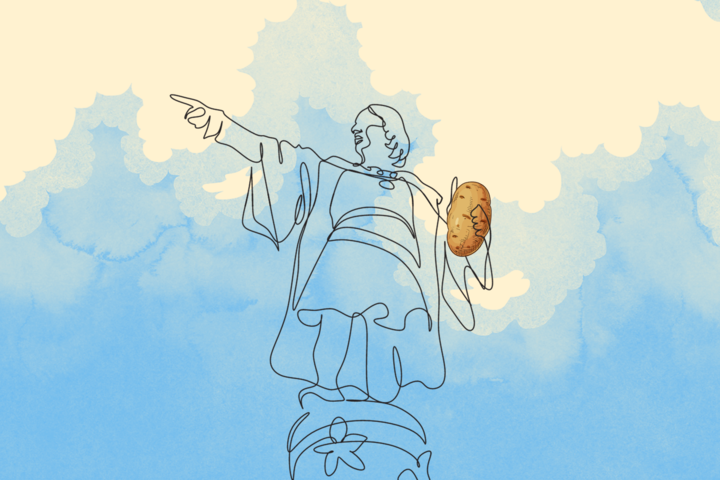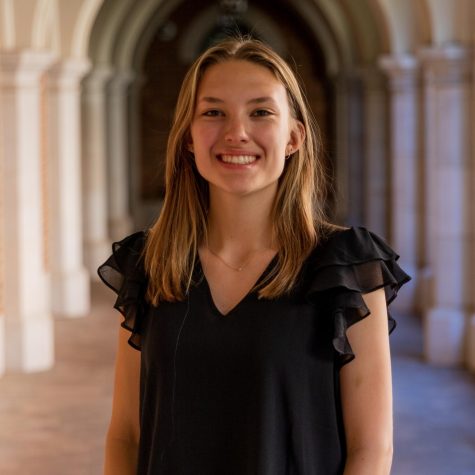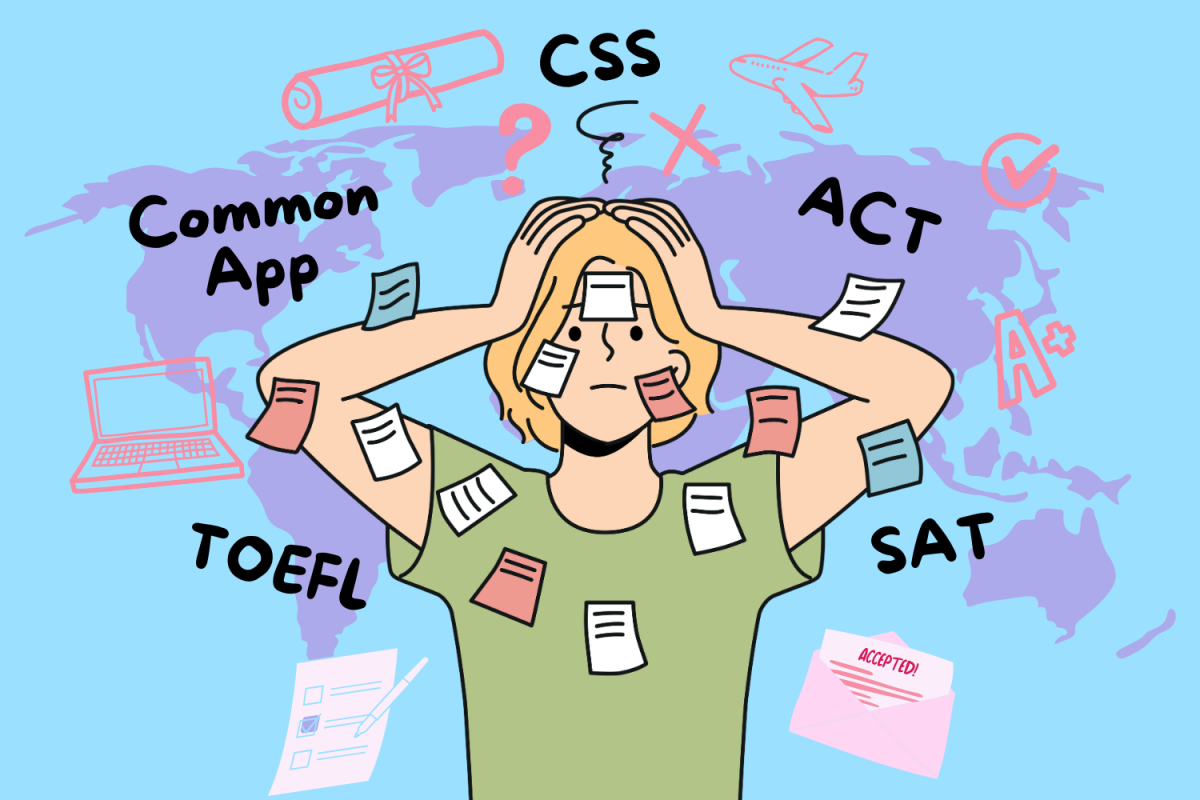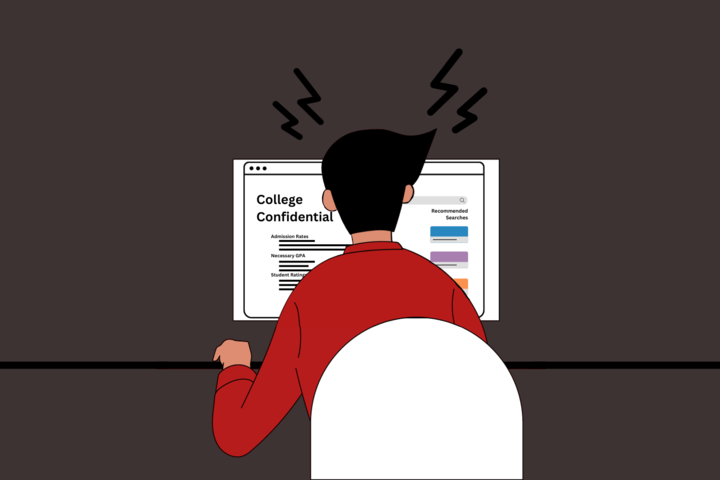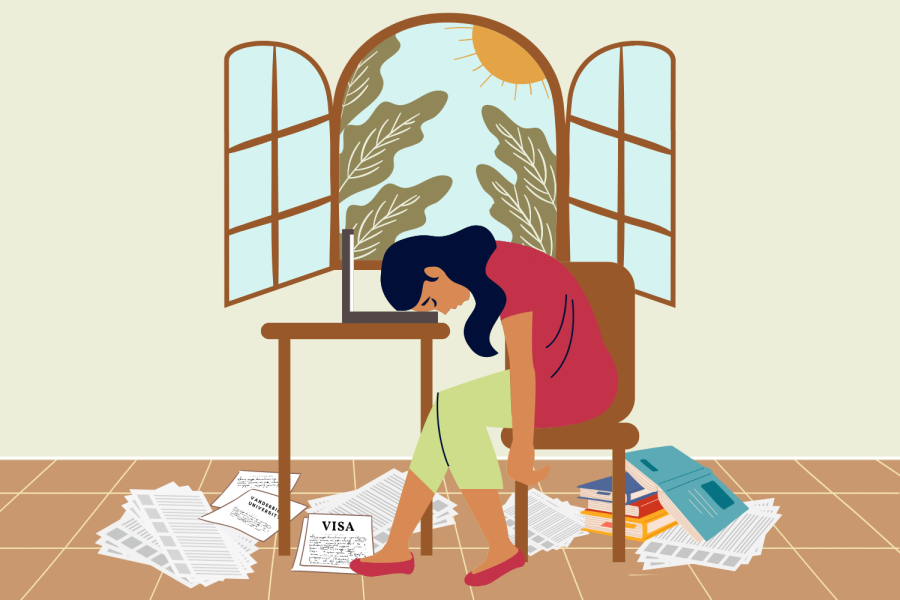As a college senior with a sister knee-deep in college applications, I should have known sooner or later that I would be paying a visit to the strange creature that was high school Stanley.
While spending several late nights strategizing over the phone with my sister about her applications, the topic of personal statements inevitably came up — the dreaded essay that allegedly makes or breaks many applicants. For those students, that essay is the capstone of their application. The culminating piece showcases to the admission committee students’ most triumphant moments and most personal vulnerabilities.
As a former employee of a college prep company, I recall the frequent conversations with my mentees about their personal statements. The importance of these essays had long been ingrained in the minds of these students — most of whom were not even seniors yet. But I am of the belief that starting the essay brainstorming process early helps them pinpoint what their motivations are and how they can harness that momentum to attain their academic and professional goals.
When providing my professional opinion on my sister’s rough drafts of her Common App essay, I reflected on my own submission four years ago. I wondered how my essay fits my benchmark for a “good” essay, a standard that had been defined by my time as a college admissions coach. If I were to go back in time and redo the process from scratch, how could I incorporate a more mature perspective that better exemplifies my high school narrative?
After overcoming an initial twinge of hesitance, I dug through the troves of Google Docs predating my college years and finally found my Common App essay. Aside from how I likened myself to both Mahatma Gandhi and the Notorious RBG, I consider this essay an honest effort to demonstrate both my writing prowess and my diverse interests to college admission offices.
While the linguistic embellishments and bells and whistles made my language quite grimacing to read, I couldn’t help but smile as I reminisced on the topics that my past self enthused over. And, of course, I also smiled at how my love for baked potatoes has never ceased.
Rather than redoing my admissions essay alone, I solicited the input of two of my fellow editors and Mary Shaver, a Vanderbilt alumna and professional college admissions coach. The edits demonstrated a combination of personal and professional takes on what it means to be the astute learner, innovator and servant-leader that Vanderbilt looks for in its undergraduate students.
After I received feedback on my essay, I observed several fundamental patterns identified by my editors. Readers reflected on my tendency to adopt “purple prose,” where conversational vocabulary became overpowered by fancy but awkward language. In other words, by writing as if it were a literary prose or a research manuscript, I neglected the “personal” in “personal statement.”
My editors also noticed the use of “interview style” language, which detracts from the substance of my essay. I used the loaded baked potato as a “loaded” way of saying that I am open-minded, multi-faceted and interesting. These are generic — but essential — characteristics that Vanderbilt and every other elite university requires of prospective students. The overuse of the potato analogy covers up the details of the personal statement that are truly unique and traceable to me. Only toward the latter half of the essay are the personable details unveiled. By spending my precious time and space building that potato imagery, I failed to give my story an exposition.
Lastly, my editors pointed out how the cause-effect and start-end relationship is not as evident as it could be. Much like how a plot has an exposition, climax and end, the personal statement should demonstrate a narrative development.
After reviewing all edits, I have revised my essay to reflect an authentic high school Stanley under a more polished, sophisticated light.
Of course, my writing has without a doubt improved from the one dated four years ago; AXLE writing requirements are part of the College of Arts and Science curriculum for a reason, after all. Nevertheless, my new essay adopts a more melancholic, but still optimistic, approach to the potato symbol. My rewrite of my Common App essay is an attempt at documenting a sense of growth. I touched on an area of my past self that I am not proud of but is an essential part of me.
The process of rewriting my essay — and writing this piece for The Hustler — was not speedy. In my essay, I had to come to terms with my past tendency of doing too much, too fast — always wanting to be in lockstep with the people around me. When rewriting, I found myself meditating on personal challenges of long ago, knocking on the door of memories that I’d avoided. In the writing process, I discovered aspects of myself that I had never pinpointed before and re-evaluated past events with a more mature mindset.
I call on my peers to revisit their cringey college essays, too. My hope is that rereading and rewriting your essay offers a new level of self-understanding — much like it did for me. Oftentimes, the idea of self-reflection is thrown around by influencers and motivational coaches as a buzzword, but not many have highlighted concrete examples of how one can do so. Here, I propose a new, more innovative way of doing so.
Perhaps this exercise is most appropriate for the Class of 2024, a cohort of student-leaders who found themselves at both the best and worst of times. As we prepare to venture out into the world beyond Vanderbilt, it is oh so easy to be lost in the fast pace of everything surrounding us, like a photograph with motion blur. The newness is fascinating and exhilarating, but ask yourself, does that mean you should be a part of that blur?
For my fellow seniors, you might be signing a lease for an apartment under your own name or purchasing your own health insurance for the first time. However, in the process of making your mark in the world, don’t forget where you came from. Our origins keep us grounded and remind us not to stray too far. Once in a while, take out that photo book. Shuffle through those old letters or the yellowing report cards stashed in a closet corner. Or even rewrite your college essay. I promise that you will learn something new.



